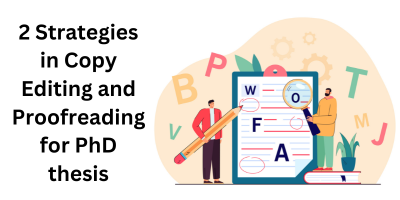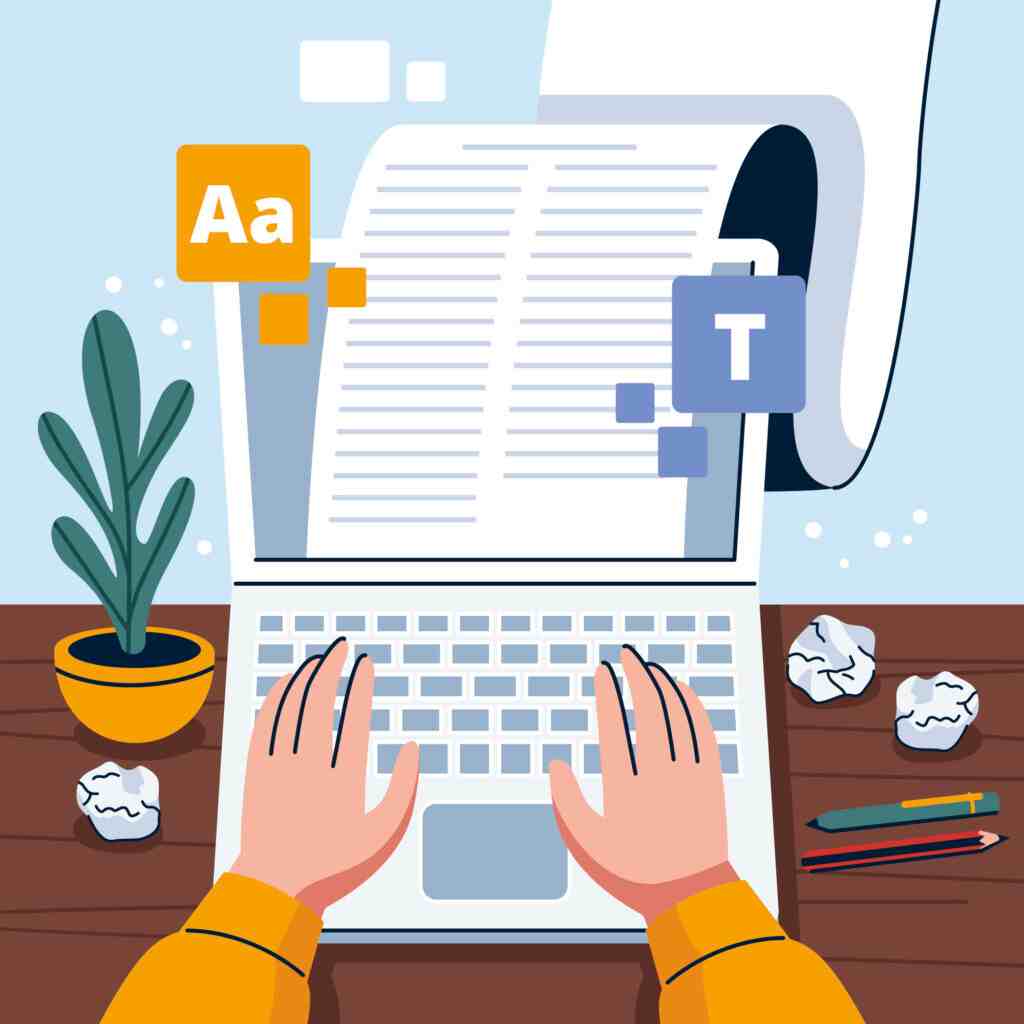Welcome to our blog where we delve into the essential art of copy editing and proofreading for PhD thesis. Crafting a doctoral thesis is a monumental task, and ensuring its clarity and precision is paramount. In this post, we’ll explore two fundamental strategies that can significantly enhance the quality of your academic masterpiece.
Copy editing and proofreading are crucial stages in the editorial process, ensuring written content is polished and error-free. Copy editors focus on improving style, clarity, and consistency, while proofreaders meticulously hunt for grammatical errors and typos. Together, they elevate the overall quality of written material, enhancing its impact and professionalism.
Copy editing involves polishing the language, refining the structure, and ensuring coherence throughout your work. Proofreading, on the other hand, is the meticulous process of catching those elusive typos and grammatical errors that may have slipped through the cracks. Whether you’re in the early stages of drafting or preparing for the final submission, these strategies will serve as your guiding light in perfecting your PhD thesis. Let’s embark on this journey of finding the strategies of copy editing and proofreading for PhD thesis.
Strategy Number 1: Semantic Consistency Mapping
– Enhanced Conceptual Coherence: Professional copy editing and proofreading for PhD thesis, employing Semantic Consistency Mapping, ensures a heightened level of conceptual consistency.
– Thorough Terminology Alignment: A skilled PhD thesis editor, utilizing this strategy, meticulously aligns the usage of key terms throughout the document, preventing any inadvertent variations in language.
– Elevated Academic Integrity: By focusing on semantic consistency, the benefits of hiring PhD thesis editor for copy editing and proofreading extend beyond surface-level corrections. This strategy contributes significantly to maintaining the academic integrity of the thesis, a crucial aspect of Professional Copy Editing and Proofreading for PhD theses.
– Improved Reader Comprehension: Ensuring that terminology is consistently used fosters a clearer understanding of the research, making the thesis more accessible to readers. This, in turn, aligns with the overarching goal of enhancing the overall quality and impact of the academic work.
Strategy Number 2: Algorithmic Ambiguity Detection
Professional Copy Editing and Proofreading for PhD theses, incorporating Algorithmic Ambiguity Detection, ensures a higher degree of precision in expression by identifying potential ambiguities that may compromise clarity.
A PhD thesis editor, employing this strategy, leverages cutting-edge algorithms to scrutinize the text, going beyond standard proofreading. This approach enables the identification of subtle instances where sentences may be open to multiple interpretations.
The benefits of hiring PhD thesis editor for copy editing and proofreading extend to providing specific suggestions for clarification. This ensures that the edited thesis not only corrects errors but actively addresses areas where ambiguity may arise, contributing to the overall improvement of the document.
By integrating algorithmic analysis into the proofreading process, this strategy contributes to elevating the overall writing quality of the thesis, aligning with the overarching goals of Professional Copy Editing and Proofreading for PhD theses.
How to choose services related to Professional Copy Editing and Proofreading for PhD thesis
1. Expertise in Academic Writing:
Professional editors specialized in PhD theses possess a deep understanding of academic writing standards, ensuring that your document adheres to the required style and tone.
2. Language Precision:
A skilled editor will meticulously review your thesis for grammatical errors, spelling mistakes, and language inconsistencies, enhancing the overall clarity and coherence of your work.
3. Structural Refinement:
PhD thesis editors can provide valuable insights into improving the overall structure of your document, ensuring that your arguments flow logically and your ideas are presented in a cohesive manner.
4. Thesis Formatting:
Editors are well-versed in the specific formatting guidelines of academic institutions, ensuring that your thesis meets the required standards for citations, references, and overall presentation.
5. Time and Stress Management:
Outsourcing the editing and proofreading tasks to professionals allows you to focus on the substantive aspects of your research, reducing the stress associated with the meticulous review process.
Final Thoughts
In wrapping up, perfecting your copy editing and proofreading for PhD thesis is more than fixing mistakes. The two strategies we explored – making sure your words match up (Semantic Consistency Mapping), adding helpful visuals (Cohesive Infographic Integration), and using smart algorithms to catch confusing parts (Algorithmic Ambiguity Detection) – bring extra value.
Hiring a skilled editor for your PhD thesis who knows these methods goes beyond just correcting errors. It’s about making your ideas clear, your visuals helpful, and your writing top-notch. By using these strategies, you’re not just polishing; you’re making your thesis stand out. So, when diving into Copy Editing and Proofreading for your PhD thesis, remember these tricks. They turn a good thesis into an excellent one, making your hard work shine even brighter.
SfASE (Society for Academic and Scientific Editors) is a platform that provides editorial assistance to PhD researchers and editors. They offer a range of services, including research guidance, data analysis, and statistical consulting, to help PhD researchers in various subject domains. SfASE plays a crucial role in supporting both PhD researchers and editors. They provide a platform for professional editors to collaborate with peers and enhance their editing skills.
Editors can discover intriguing freelance editing possibilities by joining SfASE. SfASE has a team of experienced editors who provide developmental editing services to PhD researchers. They also offer proofreading and copyediting services to ensure that the research papers are free of errors and are of high quality. For more information, please visit their website at sfase.org.
FAQs-
1. How do I find a Copy Editing and Proofreading service for PhD thesis?
Seek a Copy Editing and Proofreading service for your PhD thesis through online platforms or recommendations.
2. Why should you hire a Copy Editor for your PhD thesis?
Hiring a Copy Editor ensures clarity, coherence, and polished language in your PhD thesis.
3. What is the difference between copy editing and proofreading?
Copy editing focuses on language refinement and structure, while proofreading targets errors and typos.
4. what are the qualities of a good Proofreader?
Good proofreaders possess attention to detail, excellent language skills, and a keen eye for grammatical accuracy.



